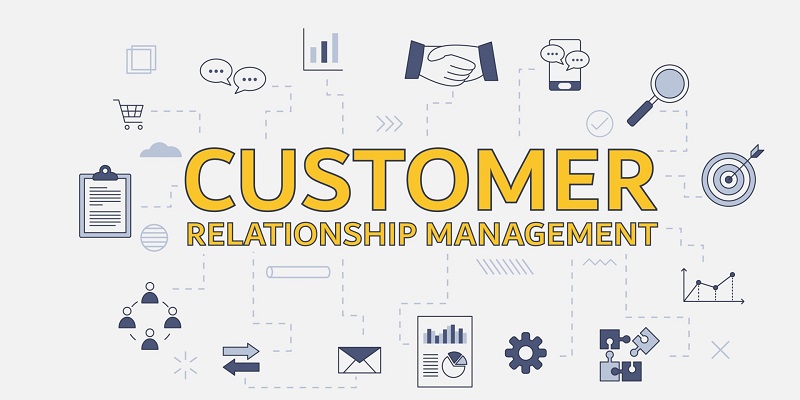Customer Relationship Management (CRM) is a popular business strategy that has transformed the way organizations manage relationships with their customers. With modern-day businesses striving to stay ahead of their competition, it has become imperative to establish and maintain strong relationships with customers. CRM software enables businesses to optimize their sales processes, improve customer satisfaction, and increase profitability.
Market Value of CRM: Statistics and Predictions
According to recent research conducted by MarketsandMarkets, the CRM market was worth $58 billion in 2021. This figure is set to grow at a Compound Annual Growth Rate (CAGR) of 12.2%, and by 2029, this number is expected to reach $146 billion. The impressive growth of the CRM market highlights the increasing importance of CRM in modern-day business.
Benefits of Implementing CRM: Enhancing Customer Relationships
There are numerous benefits of implementing CRM software in your business processes. Firstly, after implementing a CRM successfully, 74% of businesses reported improved access to customer data. This helps businesses gain an in-depth understanding of their existing customers, which is essential for effective marketing and communication. Companies can utilize this data to create targeted campaigns, personalized messages, and improve their overall customer experience.
Secondly, CRM software can increase your sales by 29%, your productivity by 34%, and your forecast accuracy by 42%. By automating repetitive processes, CRM software enables sales teams to focus on providing high-quality service and developing meaningful relationships with customers. This increase in productivity allows for more sales activities, leading to more deals closed and increased revenue.
Drawbacks of Traditional Customer Service Tracking Methods: A Missed Opportunity
Traditionally, companies used post-its, email threads, memo boards, and phone calls to track their customer interactions. Companies that make use of such a system run the risk of losing valuable customer data. When employees leave the company, their crucial insights and knowledge of the customers leave with them. This data loss can cause confusion among customer interactions and result in missed sales opportunities.
Time-saving benefits of CRM: Why Salespeople Consider CRM Critical
CRM software saves time by automating redundant tasks, allowing sales teams to focus on providing high-quality service to customers. Furthermore, there’s a reason 82% of salespeople say that CRM tools are “critical” to deal-closing. With a comprehensive understanding of their customers’ needs and preferences, sales representatives can tailor their sales approach and close deals more efficiently.
Prioritizing goals for a successful CRM implementation: The importance of ranking goals
Before implementing a CRM system, it is important to prioritize your goals. This involves creating a list of business priorities and evaluating each goal in terms of its importance and potential impact on the organization. By ranking the goals, businesses can create a roadmap that outlines their CRM objectives, and ensure that everyone is aligned and moving towards a common goal.
Choosing the Right CRM Software: The Most Pivotal Moment of Your Journey
Choosing the right CRM software is critical to the success of your implementation. Different CRM systems offer various features, and it’s important to select software that aligns with your specific business needs. When choosing a CRM system, consider factors such as your business size, your budget, the level of customization required, and the training required for employees.
Timeline for Implementing CRM: Mapping out the Journey
It is important to set a timeline and establish clear expectations for each stage of the implementation journey. A timeline helps to ensure that the implementation process stays on track and increases the chances of a successful CRM implementation within the targeted timeframe.
Demonstrating the Value of CRM Software: Essential Features
The value of efficient CRM software cannot be emphasized enough. With effective CRM software, users can get a comprehensive view of their customer interactions and make data-driven decisions. When selecting CRM software, consider features such as data visualization, predictive analytics, and customization of workflows. These features will help your business transform its relationship with its customers.
Employee Buy-in: One of the Keys to a Successful CRM Implementation
Getting your employees on board is critical for the success of your CRM implementation. Your employees are the ones who will interact with the CRM system, making them essential to providing value to your business. Communicate effectively with your employees and create opportunities for training with detailed guidelines. Encourage an open and transparent culture that promotes teamwork and reassures your staff about the benefits of CRM.
In conclusion, CRM software is essential for modern-day businesses to establish and maintain meaningful relationships with their customers. By automating redundant tasks and simplifying business processes, CRM software can increase productivity, enhance customer satisfaction, and improve sales and forecasting accuracy. Therefore, to keep up with rapid industry growth and stay ahead of the competition, businesses must consider implementing CRM software in their day-to-day operations.

